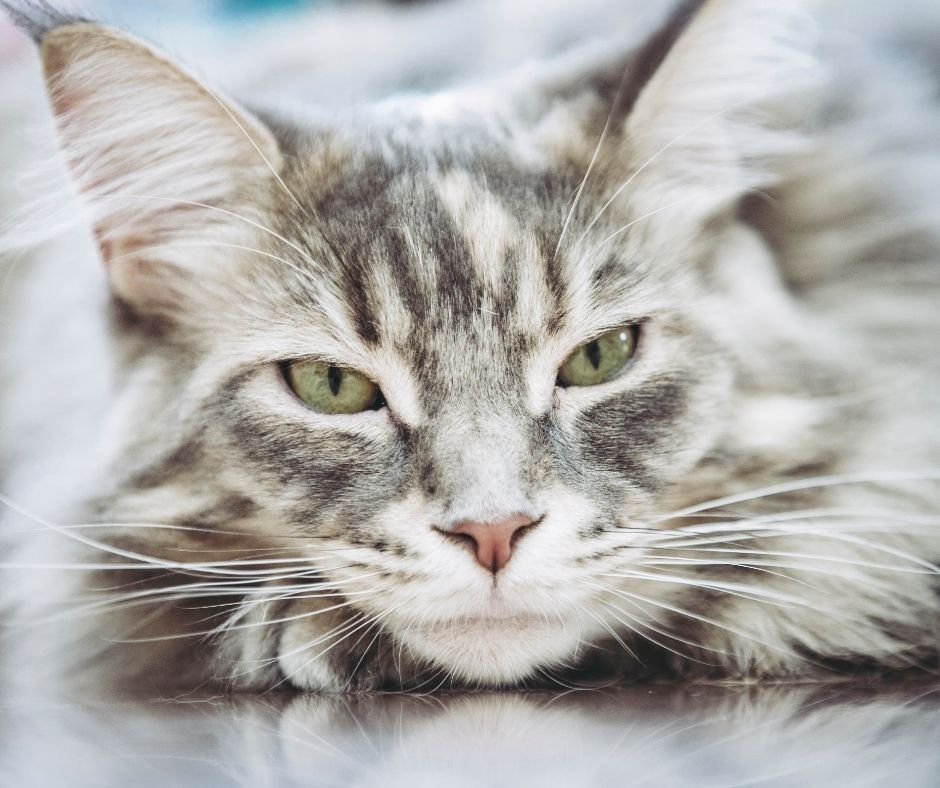What is Cat Coryza? For a better understanding
Definition of Coryza
Coryza is a highly contagious infectious disease that can spread rapidly between cats. It’s often compared to the common cold in humans, but its severity can go far beyond the common cold. Symptoms usually include sneezing, runny nose, conjunctivitis and loss of appetite. It is caused by several viruses and bacteria, the most common of which are Calicivirus, Herpesvirus and Chlamydophila.
Origins of cat coryza
Coryza in cats is a disease that generally results from infection by several infectious agents simultaneously. These viruses are present in the environment and can be carried by cats without causing disease. However, in the event of a drop in the immune system, for example during stress, malnutrition or chronic illness, these viruses can reactivate and lead to illness, which is often serious.
Cat coryza symptoms: Signs to look out for
Warning signs of coryza
The warning signs of cat coryza are often discreet and can easily go unnoticed. They generally appear 2 to 5 days after exposure to the virus. Your cat may show general signs of discomfort, a runny nose or eyes, sneezing or coughing. He may also experience a slight rise in temperature and loss of appetite.
Common symptoms of coryza in cats
As the disease progresses, cat coryza symptoms can become more severe. Your cat may begin to have difficulty breathing due to swelling of the nasal mucosa. He may also develop painful ulcers in the mouth, on the tongue and on the lips. These ulcers can lead to loss of appetite and weight loss. If left untreated, they can worsen, causing excessive salivation, difficulty swallowing and high fever.
Serious symptoms requiring immediate attention
If your cat shows symptoms such as dyspnea (difficulty breathing), rapid weight loss, severe anorexia, dehydration, high fever or a general decline in health, consult an animal health professional immediately. Coryza can lead to serious, potentially fatal complications, such as pneumonia or septicemia.
Diagnosis and treatment of cat coryza: what you need to know
Diagnosis of coryza
Diagnosis of cat coryza involves several stages. First, your veterinarian will perform a complete physical examination to check your cat’s general condition. He can also take samples (nasal swabs, blood samples) to confirm the presence of the virus. In some cases, chest X-rays may be necessary to verify the extension of the infection to the cat’s lungs.
Treatment options for cat coryza
Management of cat coryza aims to relieve symptoms and fight infection. The vet may prescribe antibiotics to combat secondary infections, anti-inflammatories to reduce inflammation and pain, and fluids to combat dehydration. In some cases, hospitalization may be necessary, especially if the cat is dehydrated or has difficulty eating.
It’s also important to support your cat’s immune system. A balanced diet rich in essential nutrients can help your cat fight infection. In some cases, your vet may recommend probiotics to help boost your cat’s immune system and facilitate healing.
Preventing cat coryza: How to protect your pet
Vaccination against coryza
Prevention of coryza is mainly based on vaccination. We recommend vaccinating your cat from an early age. This vaccination does not provide 100% protection against the disease, but it will reduce the severity of symptoms in the event of infection. There are different types of vaccines, and your veterinarian will advise you on the most appropriate one for your cat’s lifestyle.
Preventive measures to avoid coryza in cats
In addition to vaccination, there are a few preventive measures you can take to prevent your cat from developing coryza. Good hygiene is essential, as is a balanced diet to keep your cat healthy. It’s advisable to keep your cat away from sick cats and to avoid frequenting areas with a high density of cats, especially if your cat is not vaccinated. Finally, it’s also important to neuter your cats (castration/sterilization) to limit fighting, which is a means of transmitting the disease.
Coping with cat coryza: Your role as a loving owner
In conclusion, cat coryza is a common but potentially serious condition. But it’s not inevitable. As an owner, you have a key role to play in helping your cat stay healthy. Prevention through vaccination, careful observation of symptoms, rapid action in the event of illness and regular medical follow-up are the keys to successful management of cat coryza. Taking care of your cat also means getting informed and making these practices part of your daily routine.






